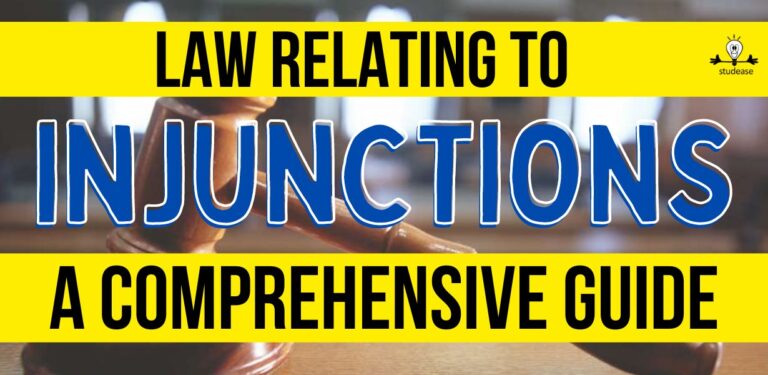120 Morgan Stanley Interview Questions: Ace Your Finance Job Interview

Preparing for a job interview can be challenging, especially when it comes to competitive firms like Morgan Stanley. This article lists 120 key interview questions that will help you land a position at Morgan Stanley by understanding what to expect.
These aren’t just standard questions; they’re tailored specifically to what Morgan Stanley values in a candidate.

If you’re aiming for a role at Morgan Stanley, you need to be ready for anything. The questions in this list cover a variety of topics. They range from technical skills and financial knowledge to problem-solving abilities and personal motivation.
Researching these areas and practicing your responses can give you the confidence you need.
Learning about the questions will help you understand the company’s approach during the interview process. By familiarizing yourself with these questions, you can prepare strategies to showcase your strengths.
You’ll also be able to address areas for improvement, making you a more appealing prospect to the interviewers.
Understanding Morgan Stanley

Morgan Stanley is a leader in the finance industry, known for its strong emphasis on diversity, comprehensive research strategies, and detailed job descriptions. Understanding these aspects will help you align your career goals with their company culture.
Diversity and Inclusion
Morgan Stanley actively promotes diversity and inclusion. They believe that a diverse workforce leads to better decision-making and innovation. The company offers several programs to support different groups, including women’s leadership initiatives and networks for minorities.
By embracing various perspectives, Morgan Stanley strives to maintain a work environment that values every individual. Understanding their diversity efforts can help you see how your unique background might contribute to the company’s success.
Researching Morgan Stanley
Before an interview, it’s crucial to research Morgan Stanley thoroughly. Start by exploring their official website, where you’ll find information on their financial services, latest initiatives, and company culture.
Follow their updates on social media platforms like LinkedIn and Twitter. Reading recent news articles about the firm can also provide insights into their current focus and performance in the industry. Knowing the details of their operations will give you an edge during the interview process.
Analyzing the Job Description
Examine the job description carefully. Focus on required skills, experiences, and qualifications. These will guide you in tailoring your resume and preparing for interview questions. Note specific terms and jargon that Morgan Stanley uses to describe their roles.
Understanding these elements can help you relate your past experiences and skills to what they are looking for. This approach ensures your answers are relevant and aligned with the company’s expectations, making you a stronger candidate.
Also Check: Goldman Sachs 110 Interview Questions
General Interview Tips: Morgan Stanley Institution

Interviews at Morgan Stanley require strong communication skills, understanding of the position you are applying for, and maintaining professionalism. Using planned approach with planning can help structure your responses efficiently.
Effective Communication Skills
Communicating effectively is crucial during interviews. Start by listening carefully to each question. Take a moment to think before you respond. This helps you provide thoughtful answers.
Speak clearly and concisely. Avoid using overly technical jargon unless it is required and aligns with the job role. Be sure to maintain eye contact. This shows confidence and engages your interviewer.
Practice common interview questions. This preparation can help reduce nervousness and improve your response delivery. Consider mock interviews with friends or mentors, who can provide feedback on your communication style. These steps can enhance your ability to convey important information.
Also Check: 90 Common Job Interview Questions
Understanding of the Role
Understanding the role you’re applying for is essential. Begin by thoroughly researching the position and the company’s culture.
This preparation will allow you to tailor your responses to align with what the company is looking for.
Examine the job description and look for keywords. Use these terms in your responses to show you understand the role’s requirements. Prepare questions about the role and the company itself. This can demonstrate your enthusiasm and engagement.
Professionalism in Interviews
Displaying professionalism is the key during interviews. Ensure your attire is appropriate for the company culture, leaning towards business formal when in doubt. Being punctual, ideally arriving 10-15 minutes early, sets a positive tone.
Maintain a polite demeanor throughout the interview. Address everyone by their titles, such as Mr. or Ms., unless offered a different option. This shows respect and consideration. Refrain from interrupting and wait for your turn to speak.
Remember, professionalism extends beyond how you dress. It’s how you conduct yourself, both during and after the interview.
Sample Interview Questions: Morgan Stanley

When interviewing, it’s important to explore various skills, such as problem-solving and interpersonal abilities. Understanding these areas can help you demonstrate your value effectively.
Problem-Solving Abilities
Problem-solving is crucial for many roles. You should be prepared to analyze situations, identify issues, and propose solutions. Here are few questions that can help:
- Describe a challenging problem you solved.
- How do you prioritize multiple solutions?
- Tell me about a time you used data to solve an issue.
- What’s your approach to troubleshooting?
- How do you handle unforeseen complications?
- Can you give an example of a risk you took that didn’t work out?
- How do you deal with failure?
- Describe a situation where you had to think on your feet.
- How do you develop creative solutions?
- Share an example of a time you improved a process.
Interpersonal Skills
Interpersonal skills allow you to work effectively with others. You should be ready to discuss your communication, empathy, and teamwork abilities. Consider these questions:
- Describe how you handle conflict with a coworker.
- Give an example of how you build rapport with others.
- Tell me about a time you had to persuade someone.
- How do you adapt your communication style to different people?
- Share an experience working on a challenging team project.
- How do you handle feedback from others?
- Describe a time you helped a colleague in need.
- How do you promote a positive team environment?
- Share an example of a time you resolved a misunderstanding.
- How do you balance assertiveness and empathy?
Time Management Scenarios
Time management is key to productivity. Be prepared to talk about how you organize tasks, meet deadlines, and manage workload. Explore these questions:
- How do you prioritize tasks when everything is urgent?
- Describe your process for setting daily goals.
- Tell me about a time you missed a deadline.
- How do you handle interruptions at work?
- What’s your strategy for managing large projects with tight deadlines?
- What tools do you use to keep organized?
- Share an example of how you handled conflicting priorities.
- How do you allocate your time for critical projects?
- Describe a time you improved your efficiency.
- How do you ensure productivity when working remotely?
Also Check: Best Companies to Apply for Jobs in Canada
Project Management Examples
Project management requires planning, execution, and oversight skills. You should highlight experiences managing resources, timelines, and teams. Consider these questions:
- Describe a successful project you managed.
- How do you allocate roles in a team project?
- Tell me about a time you managed a project budget.
- Share an experience dealing with a project crisis.
- How do you track project progress?
- Describe a time you adjusted a project plan on the fly.
- How do you evaluate project outcomes?
- What strategies do you use to motivate your team?
- Tell me about a time you had to negotiate resources.
- How do you handle disagreements within your project team?
Also Check: Interview Questions Bank of America
List of 120 Interview Questions: Morgan Stanley Job Interview

- Tell me about yourself.
I’m a dedicated finance professional with a background in economics and five years of experience in investment banking. I enjoy solving complex problems and have a passion for financial markets. - Why do you want to work at Morgan Stanley?
I admire Morgan Stanley’s innovative approach and commitment to client satisfaction. I am eager to contribute to your team. - Describe a challenging situation you faced and how you handled it.
In my previous role, I faced a tight deadline. I prioritized tasks, communicated with my team, and delivered the project on time. - Explain a time you assessed risk in a project.
I evaluated market trends and adjusted forecasting models, which helped reduce potential losses. - How do you handle stress?
I manage stress through effective planning and staying organized. I also practice mindfulness to maintain focus. - Describe a successful client relationship you’ve maintained.
I maintained a strong relationship with a key client by providing personalized service and proactive communication. - What’s your approach to solving complex problems?
I break down the problem into smaller parts, analyze each one, and seek input from others to find the best solution. - How do you prioritize your tasks?
I use a priority matrix to identify urgent and important tasks, ensuring efficient use of time. - Describe a financial model you’ve built.
I designed a model to predict customer behavior based on previous sales data, improving sales strategy. - How do you stay updated with financial news?
I read financial journals, subscribe to updates, and attend relevant webinars. - Give an example of a team project you’ve worked on.
I led a team in creating a new investment strategy, achieving a 10% increase in client portfolio growth. - What do you do when you disagree with a team member?
I listen to their perspective, offer my viewpoint, and work towards a mutually beneficial solution. - How do you ensure accuracy in your work?
I double-check figures, cross-reference data, and use software tools to verify results. - Describe your experience with data analysis.
I have experience with Excel and X Software for analyzing large datasets and providing insights. - How do you handle tight deadlines?
I allocate resources wisely, communicate progress, and stay focused. - What motivates you in your career?
I am motivated by solving challenging problems and helping clients reach their financial goals. - How do you approach learning new skills?
I keep an open mind, seek educational resources, and practice regularly. - Describe a case question you’ve worked on.
I evaluated a merger proposition, considering market conditions and potential synergies. - What is your greatest strength?
My greatest strength is analytical thinking, which helps in making sound financial decisions. - Describe a time when you had to make a quick decision.
During a financial review, I quickly identified a discrepancy and corrected it before it impacted the client. - How do you handle constructive criticism?
I view it as a learning opportunity and try to implement feedback for improvement. - What techniques do you use for risk assessment?
I use risk matrices and scenario analysis to evaluate potential risks. - Explain a time you improved a process.
I streamlined reporting procedures, saving the team five hours per week. - How do you ensure effective communication with clients?
I actively listen, provide clear updates, and tailor my communication to each client. - Tell me about a successful project you led.
I led a project to launch a new financial product, resulting in substantial client interest and adoption. - How do you approach a case study?
I start by understanding the background, identify key issues, and propose a data-driven solution. - What is your leadership style?
I believe in leading by example and empowering my team with trust and support. - What is important in client relationships?
Trust, communication, and personalized service are vital to building strong client relationships. - Describe a time when you managed conflict.
I mediated a team disagreement by encouraging open dialogue, leading to a collaborative solution. - How do you adapt to changes in the financial market?
I stay informed about market trends and adjust strategies accordingly. - Describe your experience with financial software.
I am proficient in Bloomberg Terminal and financial modeling software like MATLAB. - How do you measure success in your role?
Success is achieving client goals and maintaining strong professional relationships. - Describe a time when you exceeded expectations.
I exceeded sales targets by 15% through strategic planning and client engagement. - How do you approach a new project?
I analyze the objectives, outline necessary steps, and allocate resources efficiently. - Give an example of how you used data to drive decisions.
I used sales data to identify opportunities and refine marketing strategies. - What are your career goals?
I aim to advance in investment banking and take on more leadership responsibilities. - How do you stay motivated during long projects?
I set short-term goals to track progress and stay focused. - Describe a challenging client request you’ve handled.
I managed a complex portfolio adjustment, ensuring minimal disruption to the client’s overall strategy. - How do you handle multiple priorities?
I set a priority list and allocate time effectively to manage tasks. - What do you enjoy most about the financial industry?
I enjoy analyzing market trends and helping clients make informed decisions.
- What qualities do Morgan Stanley employees possess?
- How does Morgan Stanley’s culture align with your values?
- Explain a time when you took initiative.
- What are Morgan Stanley’s core values?
- Describe a project you wish you had handled differently.
- How do you manage time effectively?
- How do you handle failure?
- What is an example of a strategic decision you made?
- Describe a time you went beyond the call of duty.
- How do you ensure continuous improvement in your role?
- What are your thoughts on recent market trends?
- Describe your experience with mergers and acquisitions.
- How do you ensure compliance with financial regulations?
- Explain your approach to forecasting trends.
- Describe a time when data analysis led to insights.
- How do you handle confidential information?
- What’s an important lesson you’ve learned in your career?
- Describe how you handle unexpected challenges.
- What is your approach to maintaining work-life balance?
- Explain your strategy for successful negotiation.
- How do you plan for long-term growth?
- Describe your experience with international markets.
- What has been your biggest professional achievement?
- How do you manage professional relationships?
- Describe a situation where you had to lead change.
- How do you align your work with organizational goals?
- What role does technology play in finance today?
- Describe an innovative solution you’ve implemented.
- How do you respond to market volatility?
- Explain the importance of ethics in finance.
- What is your experience with portfolio management?
- How do you handle ambiguity in a project?
- Describe a risk you took and its outcome.
- How do you stay focused during repetitive tasks?
- Describe your experience with equity research.
- How do you build trust with clients?
- Describe your approach to decision-making.
- What are key factors in effective teamwork?
- Explain a time you achieved a significant goal.
- What are common risks in financial services?
- How do you ensure transparency with stakeholders?
- Describe a successful strategy you’ve employed.
- How have you adapted to new technology in finance?
- What is vital in managing investments?
- Describe your experience with derivatives.
- How do you ensure that client needs are met?
- What books or resources are valuable in finance?
- Describe a time you used creative thinking to solve a problem.
- How do you work with diverse teams?
- Explain a tool or system that improved your efficiency.
- Describe a time when you helped a team member.
- How do you prepare for meetings with clients?
- Explain your thoughts on sustainable finance.
- Describe a feedback process you implemented.
- What’s the role of communication in risk management?
- How do you approach personal development?
- Describe a situation requiring quick adaptation.
- How do you approach setting priorities for a team?
- What are important trends in wealth management?
- Describe a time when you improved a working relationship.
- How do you gather data for decision-making?
- Explain the role of analytics in finance.
- Describe a time you successfully managed a budget.
- How do you prepare for unexpected financial scenarios?
- What motivates you to excel in finance?
- Describe a successful marketing strategy you developed.
- How do you identify growth opportunities?
- Describe your experience with risk analytics.
- How do you use feedback to improve your work?
- Explain why client retention is important.
- What is your experience with credit analysis?
- Describe a scenario where you managed customer expectations.
- How do you ensure data accuracy?
- How do you handle diverse viewpoints in a team?
- Describe a time you solved a problem creatively.
- How do you approach planning under uncertainty?
- What strategies do you use for effective leadership?
- Describe how you ensure ethical standards in your work.
- How do you handle a steep learning curve?
- Explain the impact of global events on finance.
Frequently Asked Questions: Morgan Stanley Interview

Preparing for a Morgan Stanley interview involves understanding the types of questions you might face and knowing the structure of the interview process. Here, we’ll break down what you need to know for investment roles and coding interviews.
What types of questions can I expect in a Morgan Stanley interview?
Expect a mix of technical, behavioral, and situational questions. Technical questions assess your knowledge in finance, markets, or coding, depending on the role. Behavioral questions focus on past experiences and how you handled them.
What is the interview process like at Morgan Stanley for an investment role?
The process usually involves multiple stages. You start with an initial screening, followed by several rounds of in-person or virtual interviews. These interviews focus on both technical knowledge and soft skills, such as teamwork and problem-solving.
Can you describe the structure of Morgan Stanley’s interview rounds?
The interview rounds often include a phone interview, a technical test or case study, and several face-to-face interviews. Each round aims to evaluate your fit for the position and the company.
What type of questions are typically asked during the telephone interview for Morgan Stanley?
During a telephone interview, you might face questions about your resume and experiences. The interviewer may also test your basic knowledge relevant to the job, like financial concepts or logical reasoning skills.
How can I prepare for the coding interview at Morgan Stanley?
To prepare for a coding interview, practice solving coding problems on platforms like X. Brush up on data structures and algorithms. Understanding common programming concepts is crucial.
What kind of support does Morgan Stanley offer to individuals returning to work?
Morgan Stanley has programs to support individuals returning to the workforce. These programs may include mentorship, training sessions, and flexible work arrangements to ease the transition back to work.
All the Best !






